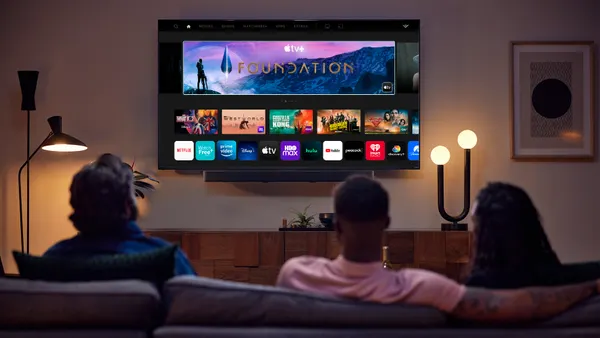Dive Brief:
- Eighty-seven percent of marketers realize that traditional experiences are no longer enough to satisfy consumers, providing an opportunity for CMOs to embrace the role of "CMO Collaborator" to think beyond typical brand advertising and communications, according to a new Accenture Interactive report released today that was conducted by Forrester Consulting and shared with Marketing Dive. Nearly 90% of marketers agree that the CMO role has changed over the past two years and think it will continue to change over the next two years.
- "CMO Collaborator" is defined as those who encourage teams to work across the company, fostering a new culture of collaboration that crosses business lines and aligning brand vision and customer experience (CX) strategy. According to the research, 95% of collaboration leaders think their CX surpasses their competitors, compared to 68% of traditional marketers. Collaborators are two times more likely to work across the C-suite.
- Among collaboration leaders, 81% say they have an insights-based, empathetic relationships with consumers, compared to 53% of traditional marketers, and 96% of collaborators think their organization meets customers' expectations, compared to 77% of traditional marketers. Sixty-nine percent of organizations with collaborators benefit from free-flowing creativity and ideas that achieve a CX "wow" factor.
Dive Insight:
The marketing landscape continues to rely more heavily on data, technology and relevant, personalized CX, and the new Accenture-Forrester research highlights how the CMO role is evolving to adapt. CMO Collaborators realize the value of company-wide partnerships, and the research revealed that 83% of collaboration leaders are implementing this strategy compared to 60% of traditional marketers. The study also underpins how other units within an organization should involve a CMO in decisions related to CX, showing that half of marketing technology purchasing decisions occur outside the marketing department. Earlier research from Forrester also revealed that 90% of organizations with collaborators are ready to execute a CX strategy and 36% of companies say they have a well-defined customer experience vision.
CX is essential for building brand loyalty and helping brands grow. A one-point increase in CX scores can equate to tens or hundreds of millions more in annual revenue, according to the study. But, lack of collaboration within an organization can create a disconnect in CX, with consumers feeling less than impressed with brands' CX. This is in line with Forrester's U.S. 2018 Customer Experience Index, released in June, that rated U.S. brands as "mediocre" in CX quality.
Personalization is a key component of CX. Consumers expect brands to deliver messages that are relevant and tailored to their needs or expectations, and 43% of consumers are more likely to purchase from companies that personalize experiences, a 2017 Accenture report found. Marketers also regularly miss the mark on personalization, with consumers saying messages are irrelevant or creepy, pointing to how marketers can continue to evolve their personalized marketing strategies.











